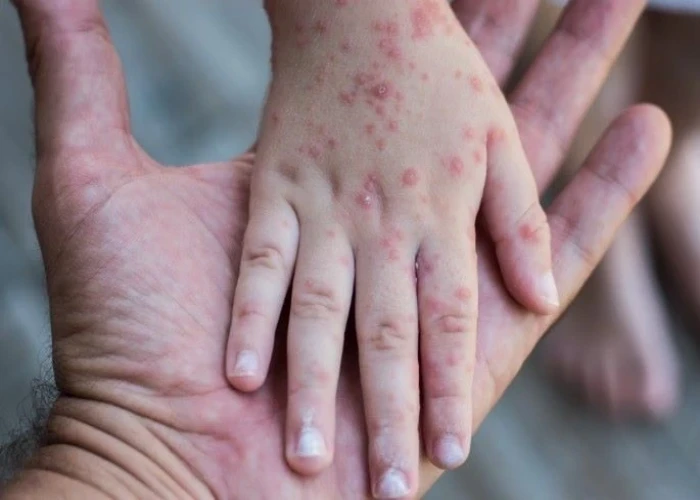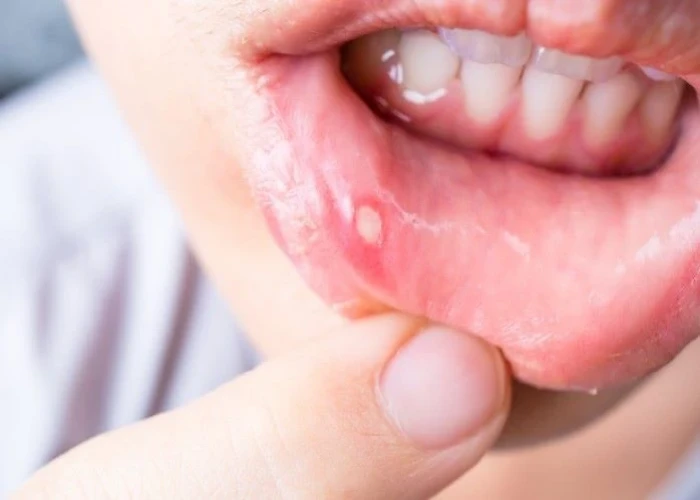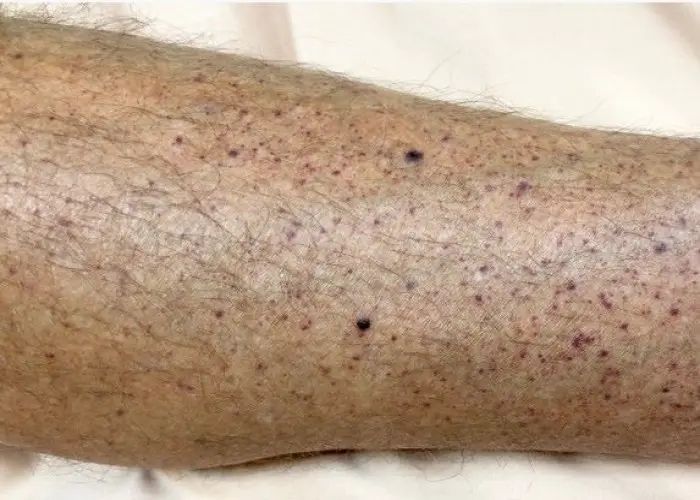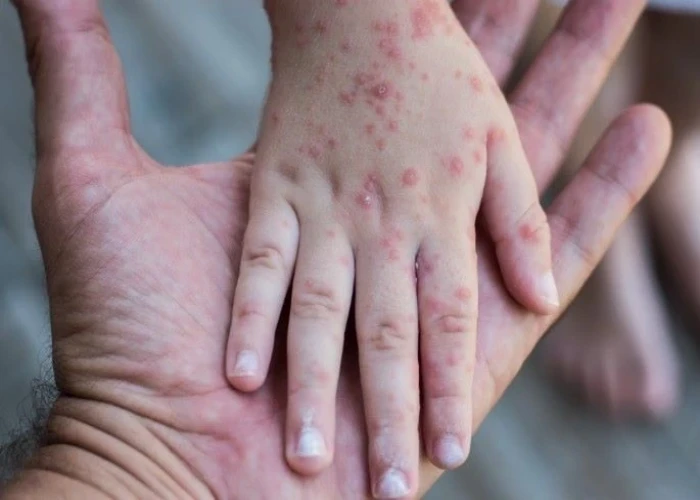 Welcome
Welcome
“May all be happy, may all be healed, may all be at peace and may no one ever suffer."
Measles

Measles is a highly contagious viral infection that primarily affects children. It is caused by the measles virus and is spread through contact with respiratory secretions from infected individuals. The virus can be transmitted through coughing or sneezing, and can survive on surfaces for several hours.
The symptoms of measles typically appear about 10-14 days after exposure and may include:
- High fever
- Runny nose
- Cough
- Red, watery eyes
- Small white spots inside the mouth
- Skin rash (usually starting on the face and spreading to the rest of the body)
Measles can be serious, especially in young children and adults with weakened immune systems. Complications may include pneumonia, encephalitis (brain inflammation), and death.
Measles can be prevented with the measles, mumps, and rubella (MMR) vaccine, which is given in two doses starting at 12-15 months of age. The vaccine is highly effective in preventing measles and is also recommended for adults who have not been vaccinated or who have not had measles in the past.
There is no specific treatment for measles, but supportive care may be given to help manage symptoms. This may include rest, fluids, and over-the-counter medications for fever and pain relief. In some cases, antiviral medications may be used to treat severe cases of measles.
If you suspect that you or your child has measles, it is important to contact your healthcare provider right away to discuss testing and treatment options. In addition, to prevent the spread of the virus, individuals with measles should stay home and avoid contact with others until the infection has cleared.
Research Papers
Disease Signs and Symptoms
- Fever
- Dry cough
- Runny nose
- Sore throat
- Swollen eye (Conjunctivitis)
- Tiny white spots with bluish-white centers on a red background found inside the mouth on the inner lining of the cheek — also called Koplik's spots
- Measles
Disease Causes
Measles
Measles is a highly contagious illness caused by a virus that replicates in the nose and throat of an infected child or adult. Then, when someone with measles coughs, sneezes or talks, infected droplets spray into the air, where other people can inhale them.
The infected droplets may also land on a surface, where they remain active and contagious for several hours. You can contract the virus by putting your fingers in your mouth or nose or rubbing your eyes after touching the infected surface.
About 90% of susceptible people who are exposed to someone with the virus will be infected.
Disease Prevents
Measles
The Centers for Disease Control and Prevention recommends that children and adults receive the measles vaccine to prevent measles.
Measles vaccine in children
To prevent measles in children, doctors usually give infants the first dose of the vaccine between 12 and 15 months, with the second dose typically given between ages 4 and 6 years. Keep in mind:
- If you'll be traveling abroad when your child is 6 to 11 months old, talk with your child's doctor about getting the measles vaccine earlier.
- If your child or teenager didn't get the two doses at the recommended times, he or she may need two doses of the vaccine four weeks apart.
Measles vaccine in adults
You may need the measles vaccine if you're an adult who:
- Has an increased risk of measles — such as attending college, traveling internationally or working in a hospital environment — and you don't have proof of immunity. Proof of immunity includes written documentation of your vaccinations or lab confirmation of immunity or previous illness.
- Was born in 1957 or later and you don't have proof of immunity. Proof of immunity includes written documentation of your vaccinations or lab confirmation of immunity or previous illness.
If you're not sure if you need the measles vaccine, talk to your doctor.
Preventing measles during an outbreak or known infection
If someone in your household has measles, take these precautions to protect vulnerable family and friends:
- Isolation. Because measles is highly contagious from about four days before to four days after the rash breaks out, people with measles shouldn't return to activities in which they interact with other people during this period.
- It may also be necessary to keep nonimmunized people — siblings, for example — away from the infected person.
- Vaccinate. Be sure that anyone who's at risk of getting the measles who hasn't been fully vaccinated receives the measles vaccine as soon as possible. This includes infants older than 6 months and anyone born in 1957 or later who doesn't have written documentation of being vaccinated, or who doesn't have evidence of immunity or having had measles in the past.
Preventing new infections
If you've already had measles, your body has built up its immune system to fight the infection, and you can't get measles again. Most people born or living in the United States before 1957 are immune to measles, simply because they've already had it.
For everyone else, there's the measles vaccine, which is important for:
- Promoting and preserving widespread immunity. Since the introduction of the measles vaccine, measles has virtually been eliminated in the United States, even though not everyone has been vaccinated. This effect is called herd immunity.
- But herd immunity may now be weakening a bit, likely due to a drop in vaccination rates. The incidence of measles in the U.S. recently increased significantly.
- Preventing a resurgence of measles. Steady vaccination rates are important because soon after vaccination rates decline, measles begins to come back. In 1998, a now-discredited study was published incorrectly linking autism to the measles-mumps-rubella (MMR) vaccine.
- In the United Kingdom, where the study originated, the rate of vaccination dropped to an all-time low of about 80% of all children in 2003-2004. In 2008, there were nearly 1,400 lab-confirmed cases of measles in England and Wales.
Disease Treatments
There's no specific treatment for an established measles infection. However, some measures can be taken to protect vulnerable individuals who have been exposed to the virus.
- Post-exposure vaccination. Nonimmunized people, including infants, may be given the measles vaccination within 72 hours of exposure to the measles virus to provide protection against the disease. If measles still develops, the illness usually has milder symptoms and lasts for a shorter time.
- Immune serum globulin. Pregnant women, infants and people with weakened immune systems who are exposed to the virus may receive an injection of proteins (antibodies) called immune serum globulin. When given within six days of exposure to the virus, these antibodies can prevent measles or make symptoms less severe.
Medications
- Fever reducers. You or your child may also take over-the-counter medications such as acetaminophen (Tylenol, others), ibuprofen (Advil, Children's Motrin, others) or naproxen sodium (Aleve) to help relieve the fever that accompanies measles.
- Don't give aspirin to children or teenagers who have measles symptoms. Though aspirin is approved for use in children older than age 3, children and teenagers recovering from chickenpox or flu-like symptoms should never take aspirin. This is because aspirin has been linked to Reye's syndrome, a rare but potentially life-threatening condition, in such children.
- Antibiotics. If a bacterial infection, such as pneumonia or an ear infection, develops while you or your child has measles, your doctor may prescribe an antibiotic.
- Vitamin A. Children with low levels of vitamin A are more likely to have a more severe case of measles. Giving vitamin A may lessen the severity of the measles. It's generally given as a large dose of 200,000 international units (IU) for children older than a year.
Disease Diagnoses
Disease Allopathic Generics
-
Paracetamol
Paracetamol syrup for fever should be given according to age.
-
Phenoxymethyl Penicillin [Penicillin V]
Antibiotics should be given for secondary infection. Common penicillin is sufficient for common measles.
-
Pheniramine Maleate
Antihistamine medicine is good for the patient during measles.
To be determined according to age. But 1/2, 1 teaspoon can be taken 2-3 times a day.
-
Promethazine Hydrochloride
Antihistamine medicine is good for the patient during measles.
To be determined according to age. But 1/2, 1 teaspoon can be taken 2-3 times a day.
-
Tetracycline Hydrochloride (Oral)
Antibiotic ointment or drops should be given in case of eye infection.
-
Amoxicillin Trihydrate
Bronchopneumonia with measles should be treated as very serious.
-
Cotrimoxazole
Bronchopneumonia with measles should be treated as very serious.
According to age, 1/2, 1 spoon 2 times a day.
-
Cephalexin
Bronchopneumonia with measles should be treated as very serious.
1/2 according to age, 1 spoon after 6 hours.
-
Benzyl Penicillin
Bronchopneumonia with measles should be treated as very serious.
into the muscle every 6 hours.
-
Vitamin B complex
Any medicine containing multivitamins should be given after curing the measles.
Disease Ayurvedic Generics
Disease Homeopathic Generics
-
Morbillinum
6, 30 strength four times a day.
-
Aconite
1X, 3X strength equal to 2/3 drops of medicine with water every three hours.
-
Gelsemium
6, 30 strength four times a day.
-
Veratrum viride
Q, 2X strength 2/3 drop of medicine mixed with little water and administered every three hours.
-
Camphor
6, 30 strength 4 times a day.
-
Kalium bichromicum
6, 30 strength mix 2/3 drop with little water and consume every 2 hours.
-
Apis mellifica
30, 200 strength mix 2/3 drop with little water and give 4 times a day.
-
Belladonna
30, 200 strength with little water.
-
Bryonia alba
6, 30 strength with little water.
-
Sulphur
6, 30 strength with little water 3 times a day.
Disease yoga
Measles and Learn More about Diseases

Atrial septal defect (ASD)

Intracranial venous malformations

Mouth Ulcer

Vocal cord paralysis

Keratitis

Bronchiectasis

Immune thrombocytopenia (ITP)

Intussusception
measles, হাম
To be happy, beautiful, healthy, wealthy, hale and long-lived stay with DM3S.
